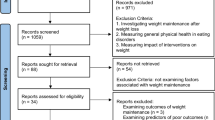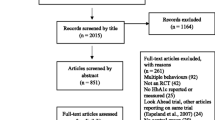Background: Bariatric surgery has been increasingly utilized for treatment of severe obesity. Although initial weight loss following surgery is almost completely assured, little is known about long-term out-come and patient compliance with post-surgical behavioral recommendations for diet and exercise that would improve outcome. The purpose of this study was to examine the rate of noncompliance with behavioral recommendations and to identify the incidence of psychological concerns following bariatric surgery. Method: Subjects were identified from an active clinical data-base of prospective clinical follow-up of all bariatric surgery patients. 100 consecutive patients who underwent Roux-en-Y gastric bypass were identified, and a chart review was conducted at 6 and 12 months postoperatively to gather demographic data and identify the prevalence of noncompliance identified in monthly follow-up visits. Also, patients were asked about depression, relationship/sexual concerns, and medical complications. Results: 81 women and 19 men were followed for 1 year. The majority of patients reported noncompliance in at least one area, with lack of exercise and snacking being most frequently cited (41%, 37% respectively overall). Most patients were compliant with eating protein first and avoiding sodas. At 12 months follow-up, 12% reported depression, 4% reported sexual concerns and 2% reported relationship problems. Also, 9% reported having experienced some medical complication related to their surgery. Conclusion: Noncompliance with behavioral recommendations is pervasive following bariatric surgery, with lack of exercise being the most likely area of noncompliance. Because of the importance of compliance with behavioral recommendations for the successful outcome of bariatric surgery, further research is warranted to further clarify the factors that impact long-term outcome and to design interventions to improve compliance.
Similar content being viewed by others
Author information
Authors and Affiliations
Rights and permissions
About this article
Cite this article
Elkins, G., Whitfield, P., Marcus, J. et al. Noncompliance with Behavioral Recommendations Following Bariatric Surgery. OBES SURG 15, 546–551 (2005). https://doi.org/10.1381/0960892053723385
Published:
Issue Date:
DOI: https://doi.org/10.1381/0960892053723385




